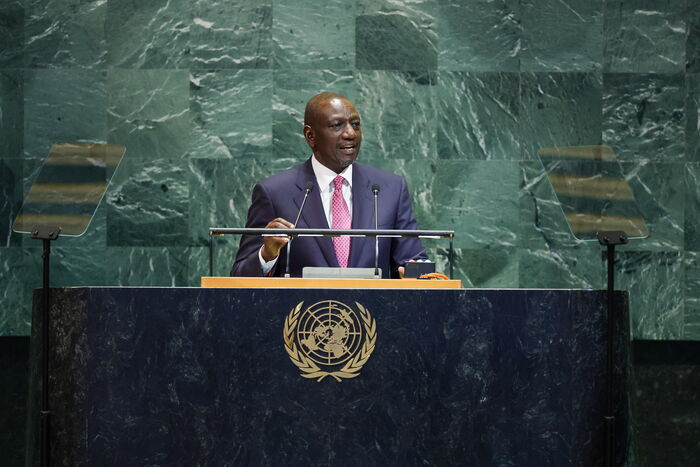President William Ruto has reignited calls for Africa to secure permanent representation at the United Nations Security Council (UNSC), describing the continent’s current exclusion as outdated and a threat to the credibility of the UN. Speaking during the General Assembly debate on September 24, Ruto emphasized that while African issues dominate the UNSC agenda, Africa remains the only continent without a permanent seat.
Currently, the UNSC has five permanent members the United States, the United Kingdom, France, China, and Russia reflecting the post-World War II political landscape. These members wield veto powers, giving them the ability to block any substantive resolution, regardless of majority support. In addition to these permanent members, ten non-permanent members are elected every two years, without veto rights.
A permanent seat would offer Africa significant benefits. Beyond veto powers, permanent membership would grant the continent global influence over decisions affecting peace, security, and international law. It would allow African nations to shape resolutions on military actions, sanctions, peacekeeping missions, and the admission of new UN members.
Critics have long argued that veto powers have been used by permanent members to protect their interests and exert political dominance. Recent examples include the failed US-backed proposal to convert the Kenyan-led Multinational Security Support (MSS) Mission in Haiti into a UN peacekeeping operation, blocked by China’s veto.
The Security Council’s authority extends beyond peacekeeping. It investigates disputes, recommends settlements, regulates armaments, and participates in appointments to key UN positions, including the Secretary-General and judges of the International Court of Justice. Permanent African membership would ensure the continent has a voice in these critical decisions.
Despite ongoing advocacy, progress toward reforming UNSC permanent membership has been slow. However, Africa’s growing political, economic, and diplomatic influence strengthens the argument that permanent representation is not only justified but necessary for a balanced and credible UN.

